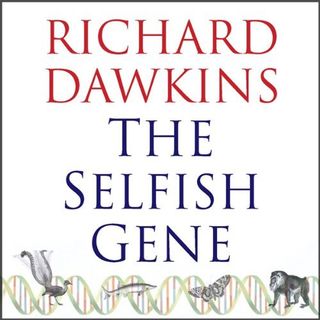Genetics
The Selfish Genius of Heredity That No One Can Deny
Selfish gene heredity is secure and set to save psychiatry whatever the maths.
Posted December 11, 2013

Writing in yesterday’s Telegraph, Roger Highfield, Director of External Affairs at the Science Museum in London, headlines the claim that “The Selfish Gene is losing friends” thanks to the on-going controversy surrounding the maths of inclusive fitness.
The Selfish Gene was of course the title of Richard Dawkins’s best seller which popularized the work of W. D. Hamilton, Robert Trivers, George Williams and others which collectively became known in the USA as Sociobiology, thanks to the book of that title published by E. O. Wilson in 1975. As Highfield points out, Wilson is now back-peddling furiously—perhaps not surprisingly in view of the fact that his approach to evolution always harked back generally to Herbert Spencer’s Social Darwinism, and to his concept of the super-organism in particular. This makes all social behavior—and altruism especially—easy to explain: if the individual is just a part of a larger super-organism without which it cannot exist, its self-sacrifice for the good of the whole is seemingly self-explanatory.
According to this way of looking at things, cancer, crime, and conflict should not exist, but of course they do. And the reason is that organisms—super-organic, sub-organic, or simply solitary—did not evolve for their own sake, and certainly not for that of society. Dawkins’s brilliant title captured what Hamilton himself called the gene’s eye view of evolution. This was the realization that ultimately organisms evolved to copy their DNA—not DNA to copy the organism as you might think.
As I have pointed out in a previous post, photocopier heredity is impossible. And in any event, the fact that you have parents of opposite sex means that you can't possibly be a copy of both of them if you yourself are one sex or the other. On the contrary, sex in mammals is determined by a single, selfish gene inherited from the father (but sometimes contradicted by a feminist one from the mother).
Whatever the controversies surrounding the Hamilton-Price equations, the term “selfish gene” today epitomizes the fundamental truth that organisms copy DNA—junk genes, introns, repetitive sequences, and so on included—with astonishing fidelity. Organisms that do so successfully are selected, those that do not are not: evolution is as simple as that.
Indeed, how else could you explain the evolution of genes such as the growth factor gene, IGF2, which is only expressed from the paternal copy in mammals? Mothers silence (or imprint) their copy because they effectively provide a free lunch for the father’s genes in the offspring by paying all the obligatory costs of gestation and lactation. Selfish genes indeed!—particularly since they put human offspring at risk of serious developmental disorders thanks to their reliance on single copies rather than the two on which they normally can rely.
According to the imprinted brain theory, such selfish genes explain mental illnesses that have genetic causes, and according to its diametric model of the mind they also explain what passes for normality if their pattern of expression is balanced. Indeed, the model even reveals a remarkable new insight into genius.
However you look at it, the selfish gene paradigm is not bereft of scientific support. On the contrary, there is no credible alternative to its view of heredity. And with a stunning confirmation of the central claims of the imprinted brain theory based on a huge data set soon to be published, the gene's eye view may find that the fair weather friends it lost recently will be more than made up by its fans in the future.
Watch this space!


